|
This is my dynamic, frequently updated homepage. This is a NewsLog, also known as a WebLog or Blog.
Everything is evolving, so don't assume too much.
People to watch:
Adina Levin
Andrius Kulikauskas
Britt Blaser
Catherine Austin Fitts
Chris Corrigan
Clay Shirky
Dan Gillmor
Dave Pollard
David Allen
David Weinberger
Dewayne Mikkelson
Dina Mehta
Doc Searls
Elisabet Sahtouris
Elizabeth Lawley
Euan Semple
Florian Brody
Frank Patrick
Gen Kenai
George Dafermos
George Por
Graham Hancock
Greg Elin
Hazel Henderson
Heiner Benking
Inspector Lohman
Jean Houston
Jerry Michalski
Jim McGee
Jim Moore
John Abbe
John Perry Barlow
John Robb
Joi Ito
Jon Husband
Jon Lebkowsky
Jon Udell
Jonathan Peterson
Judith Meskill
Julian Elvé
Julie Solheim
Kevin Marks
Lawrence Lessig
Leif Smith
Letecia Layson
Lilia Efimova
Lisa Rein
Marc Canter
Mark Oeltjenbruns
Mark Pilgrim
Mark Woods
Martin Dugage
Martin Roell
Mary Forest
Matt Mower
Max Sandor
Michael Fagan
Mike Owens
Mikel Maron
Mitch Kapor
Mitch Ratcliffe
Nathalie dArbeloff
Netron
Noam Chomsky
Paul Hughes
Peter Kaminski
Phil Wolff
Philippe Beaudoin
Ray Ozzie
Raymond Powers
Rebecca Blood
Roger Eaton
Roland Tanglao
Ross Mayfield
Scott Lemon
Sebastian Fiedler
Sebastien Paquet
Skip Lancaster
Spike Hall
Steven Johnson
Stuart Henshall
Thomas Burg
Thomas Madsen-Mygdal
Thomas Nicholls
Timothy Wilken
Todd Suomela
Tom Atlee
Tom Munnecke
Tom Tomorrow
Ton Zijlstra
Lionel Bruel
Loic Le Meur
Nancy White
Mark Frazier
Merlin Silk
Robert Paterson
Colby Stuart
Nova Spivack
Dan Brickley
Ariane Kiss
Vanessa Miemis
Bernd Nurnberger
Sites to watch:
Edge
Junto
Absara
Rhizome
Nanodot
HeadMap
Openworld
FutureHi
Imaginify
Do No Harm
BoingBoing
Smart Mobs
Webcamorama
MetaFilter
NotThisBody
Disinfopedia
YES Magazine
Collective Web
WorldChanging
Disinformation
Escape Velocity
Space Collective
Friendly Favors
Emergent by Design
Independent Media
Global Ideas Bank
Forbidden Science
Greater Democracy
ThoughtsOnThinking
Disclosure Project
Explorers Foundation
Manufacturing Dissent
Collective Intelligence
Action without borders
Free Expression Network
Co-intelligence Institute
Electronic Frontier Foundation
French:
Emmanuelle
Manur
Elanceur
Loeil de Mouche
IokanaaN
Blog d'Or
Le Petit Calepin
GeeBlog
Absara
Guillaume Beuvelot
Ming Chau
Serge Levan
Jean Michel Billaut
C'est pas Mécanique

I live in Toulouse, France where the time now is:
01:06
Unique Readers:

Primarily
Public Domain
Everything I've written here is dedicated to the
Public Domain.

The quotes from other people's writings, and the pictures used might or might not be copyrighted, but are considered fair use. Thus, overall, this weblog could best be described as being:
Primarily Public Domain. |
Syndication:
 ![Validate my RSS feed [Valid RSS]](http://www.newciv.org/pic/valid-rss.png)
|
| Saturday, February 14, 2004 |  |
|
|
|
 It is valentine's day, so some love poems from Rumi would be in good order. It is valentine's day, so some love poems from Rumi would be in good order.
The minute I heard my first love story,
I started looking for you, not knowing
how blind that was.
Lovers don't finally meet somewhere,
they're in each other all along.

Love is from the infinite, and will remain until eternity.
the seeker of love escapes the chains of birth and death.
Tomorrow, when resurrection comes,
The heart that is not in love will fail the test.

When I am with you, we stay up all night,
When you're not here, I can't get to sleep.
Praise God for these two insomnias!
And the difference between them.

Suddenly the drunken sweetheart appeared out of my door.
She drank a cup of ruby wine and sat by my side.
Seeing and holding the lockets of her hair
My face became all eyes, and my eyes all hands.

With the Beloved's water of life, no illness remains
In the Beloved's rose garden of union, no thorn remains.
They say there is a window from one heart to another
How can there be a window where no wall remains?
I found them here
[ Inspiration | 2004-02-14 08:07 | | PermaLink ] More >
|
|
|
|
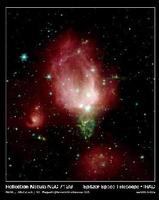 A couple of cool astronomical finds in the last couple of days. First one you can see on the left in a picture from the Spitzer Space Telescope. It is a cluster of newborn stars called NGC 7129, 3300 lightyears away in the constellation Cepheus. The nebulosity is rose-colored and rosebud-shaped. And all these stars are found in a piece of space about the same size as the distance between the Sun and the nearest star to here, Proxima Centauri. A couple of cool astronomical finds in the last couple of days. First one you can see on the left in a picture from the Spitzer Space Telescope. It is a cluster of newborn stars called NGC 7129, 3300 lightyears away in the constellation Cepheus. The nebulosity is rose-colored and rosebud-shaped. And all these stars are found in a piece of space about the same size as the distance between the Sun and the nearest star to here, Proxima Centauri.
 What you see on the right is not a photo. But what it depicts is rather amazing. It is a crystallized white dwarf named BPM 37093. A white dwarf is the hot core of a star, left over after the star uses up its nuclear fuel and dies. It is made mostly of carbon and is coated by a thin layer of hydrogen and helium gases. And in this case it has now been found that the core of this star is solid diamond. It is 2,500 miles across and weighs 5 million trillion trillion pounds, which translates to approximately 10 billion trillion trillion carats, if you want to measure it as an earth diamond. Supposedly our sun will end its days as a diamond as well. What you see on the right is not a photo. But what it depicts is rather amazing. It is a crystallized white dwarf named BPM 37093. A white dwarf is the hot core of a star, left over after the star uses up its nuclear fuel and dies. It is made mostly of carbon and is coated by a thin layer of hydrogen and helium gases. And in this case it has now been found that the core of this star is solid diamond. It is 2,500 miles across and weighs 5 million trillion trillion pounds, which translates to approximately 10 billion trillion trillion carats, if you want to measure it as an earth diamond. Supposedly our sun will end its days as a diamond as well.
[ Science | 2004-02-14 18:42 | | PermaLink ] More >
|
|
| Friday, February 13, 2004 |  |
|
|
|
 Danah Boyd gave a speech at the Emerging Technologies conference a couple of days ago which seems quite interesting, looking at the transscript. She goes through various kinds of research related to social networks. Things that have been learned, things that don't work, misunderstandings, etc. Danah Boyd gave a speech at the Emerging Technologies conference a couple of days ago which seems quite interesting, looking at the transscript. She goes through various kinds of research related to social networks. Things that have been learned, things that don't work, misunderstandings, etc.
Like the famous 6 degrees of separation. The well-known experiment found random people to be on the average 5.5 hops away from other random people. But that was when they had to guess at who they should contact to get to somebody else, and when they didn't really know. It would be different if we could actually see the whole network. Like, fewer jumps.
Research has shown that people often find, for example, jobs through weak ties. I.e. people you know, but not very well. And online social networks usually try to mimic a setup of having strong ties and weak ties, and one of the implications is that it would help you get jobs and dates. But the friends you have in an online network aren't necessarily like the friends in real life, and the friends or those friends are not really like the weak tie connections in your life.
And there's the matter of context. Just because you know somebody, even very well, in a certain context, doesn't mean you feel comfortable about doing things for them in another context. It might not seem right to make an introduction to a job you know nothing about, just because you often go out drinking with somebody. And the expectation of your connections that you'll do that kind of favors for them sort of wears on you and your actual network."Asking favors is fundamentally different than offering them. People gain by being bridges. Thus, to be able to tell you about a job gives me whuffie in our relationship. Feeling pressured to connect you to an open job makes me uncomfortable. In all of the networks described above, the bridge got to control the information flow. In Milgram's "Small Worlds," if you didn't know that i knew the target person, you may not have tried to pass it on to me. If you don't know that i am dating someone who has something that you want, you won't try to pressure me into giving you access to it. Thus, i can choose when to reveal my connections in a situation where i can come across as being helpful, rather than being put in a position to feel cornered. Revealing the network shifts the power." Which reminds me that a few of the best networkers I know wouldn't really dream of using an online network where you list all your friends, and catalogue everything you're into. I get to think of one friend who's name I'm not even going to mention. We only talk at the most once per six months or a year. But every time we talk for an hour or so, and usually he introduces me to some concept or project or person that he carefully has handpicked for me. And each time it is very valuable and appropriate. And he wouldn't dream of just introducing everybody in his rolodex to everybody else.
So, even though there are lots of benefits from free-flowing networking and sharing a lot of things in blogs, all of those connections aren't necessarily what they seem. Some connections are really weaker than they seem, and some are more important than is apparent. And the properties of the network interface makes people do all sorts of things that might obfuscate the real story.
We still don't really have all the solutions. Social behavior doesn't necessarily have merely technological solutions.
[ Organization | 2004-02-13 20:04 | | PermaLink ] More >
|
|
|
|
 Denham Grey: Documentation & knowledge. A oft repeated question / assertion in KM is the link between explicit documentation and knowledge. The point I'm trying to make, is documentation alone does not = knowledge. To retain knowledge against attrition you have to have a community that can appreciate the context, understand the issues, talk the language, adopt the assumptions, share the tricks, interpret and adapt the explicit stuff to changing external circumstances."
Matt Mower: "I have formed the view that it is intrinsic to knowledge that it be actionable. By this I do not mean that it necessarily provokes action, but that it enables it. From this viewpoint the question is documentation knowledge? doesn't matter very much. Any particular document may, or may not, be knowledge; to different people, and at different times. Everything depends upon the context." How about if no document can possibly be knowledge. Knowledge is meaning and shared understanding. Some representation of data might contain more or less information, depending on how much signal is there, and if there's a way of reading it. And the information only becomes knowledge to the degree that I draw meaning from it. If it is in a language I don't understand, there would be close to zero knowledge for me. But does it have to be actioable? I don't necessarily think so. It has to enable the action on my part of acquiring, possessing and changing meaning. I might find some new meaning, or I might be reminded of what I already know. But, depending on the context, I might or might not be happy with the mere knowledge, without having anything particular to go and do with it. It might just become part of me, and thus become wisdom. Which might mean that I might be more able and capable to act or not in the future, without any longer having to keep track of what information or knowledge enabled me to do so.
[ Knowledge | 2004-02-13 20:39 | | PermaLink ] More >
|
|
| Wednesday, February 11, 2004 |  |
|
|
|
I suddenly have a bit more work again. I had just started getting busy on getting organized businesswise, putting together stuff I can market, and then, bing, one of my old clients upped my contract this week. I'm sure it is connected, even if not directly. Unfortunately that now means I'm lying flat out getting on top of a lot of servers. That's not by far my favorite work. Different lifestyle. 24/7 having to make sure that a large numbers of servers are doing what they're supposed to be doing. That means always being close to cell phones and pagers and Internet connections, and sometimes having to be woken up to deal with some problem. I haven't exactly missed that. But it means more money, at least for a while, which will allow me to get some basic things in order. And hopefully I can channel the energy towards getting some other things going that are more enjoyable and viable in the long run. And hopefully my blogging won't suffer too much.
[ Diary | 2004-02-11 17:18 | | PermaLink ] More >
|
|
| Monday, February 9, 2004 |  |
|
|
|
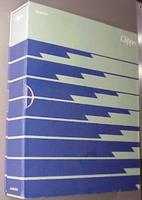 I don't know why I suddenly thought of it. But I suddenly was wondering what ever happened to Clipper, which was a database programming compiler I used to do a lot of work in. And when I wondered whatever happened to it, and searched on the net, I found this nice history. Wow, I recognize just about all of those boxes. I don't know why I suddenly thought of it. But I suddenly was wondering what ever happened to Clipper, which was a database programming compiler I used to do a lot of work in. And when I wondered whatever happened to it, and searched on the net, I found this nice history. Wow, I recognize just about all of those boxes.
I learned "real" programming languages earlier. Fortran, Algol, C, Pascal. But when it came to doing stuff that a normal business needed, they didn't do me much good. dBase did. I was running dBase II on my first IBM PC in 1983. In 1985 I was asked by an insurance company (or, rather a PPO, a network of doctors that were processing insurance claims from them) to do a simple application for keeping track of their insurance claims, which they were otherwise doing by hand. They asked me, and that was a quite meaningful question at the time, whether I thought it would be best to do it with macros in Lotus 1-2-3 or in dBase III. I was very fluent on both, and I luckily said that dBase made the most sense. Then I heard about Clipper, which was a faster, compiled, version of dBase. xBase would be the generic term for some kind of dBase clone. So, we switched to that. And what was meant to be a little parttime project for me to tinker with for a couple of months mushroomed into a five year project as the company grew dramatically, and became more efficient based on my, initially, clumsy Clipper program.
This was running in DOS on 286es. And networking was a bit primitive in those days. First it was a Corvus network, then 3Com. The Clipper version was at first Winter 85. And now, when it came to that multiple users needed to share one database, I was having a bit of a problem. File or record locking weren't available yet, neither in the networking software nor in Clipper. A year or so later it was, but at first I had to jump through some major hoops to implement the functionality of a multi-user, file-locking, error-checking, commit and rollback database system with some tools that didn't actually support it at all. But it worked. At the time the company would once in a while have Big8 consulting companies come in and evaluate what they were supposed to do. And on more than one occasion they recommended rather forcefully that they get a mainframe or at least a minicomputer, and drop this silly PC stuff which wasn't meant for this volume and kind of activity. Somehow, since I didn't know it was impossible, I convinced the management to trust that I could do it anyway, and they saved a few hundred grand in hardware costs when it turned out that I succeeded. Even Nantucket, the people who made Clipper, were shaking their heads when I explained my system of 50 workstations processing a million claims per year, stored on a database distributed over a half dozen servers. They had never heard of anybody doing anything that big with their software.
Anyway, today it would be nothing special. But then again, PCs today are close to a thousand times faster than then, and have more than a thousand times as much storage space. And dBase or Clipper would be words I wouldn't even put on my resume, as it is antiquated stuff nobody's using today. Well, almost nobody. But it is nice to be a little nostalgic.
[ Programming | 2004-02-09 08:08 | | PermaLink ] More >
|
|
|
|
There's this stupid coca cola commercial on TV. But it sort of illustrates well "being in the flow". This nerdy looking guy drinks a coke and instantly breaks out into this weird spastic dance and gets a silly grin on his face. He writhes down the street, stumbles over some guy in a Rolls and they mysteriously instantly become friends. He has another spastic rhythm attack and spills tomato sauce on a bunch of women's dresses at a party, and becomes a fashion mogul. Some other nerdy guy drinks a Coke and stumbles into his car and they parade off into more spastic coincidences.
Well, maybe it is like that. Some sort of rhythm with a life of its own takes over, and even accidents turn out to be perfect synchronicities, as you just sort of bump into things that are going the right way. Probably doesn't have much to do with drinking colored sugar water, though.
[ Inspiration | 2004-02-09 16:43 | | PermaLink ] More >
|
|
| Sunday, February 8, 2004 |  |
|
|
|
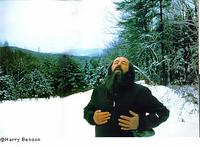 The Green Man: The Green Man:"It is easier to have freedom of thought in a concentration camp than in America today." "So said Aleksandr Solzhenitsyn. In 1970 he won the Nobel Prize for literature and is the author of a number of books that are insightful, both on the nature of the Russian political system and of the human psyche when placed in situations of extreme hardship. In 1974 he fled Russian persecution for the land of the free and the home of the brave. To his astonishment he discovered a land where freedom of thought was no greater than in Russia. There was a difference only in the nature of the restrictions on his freedom of thought not on the extent. Of course the natural response is to say "like it or leave it", that is, if he thinks it is so crook then leave (which is actually what he did, returning to his native Russia after the fall of communism.) Our friends, however, are not the ones that tell us what we want to hear, but those who tell us what we need to hear.
He made this statement many years ago. It is interesting to consider whether it is more or less appropriate today. Are we more or less able to question the behaviour of our country's respective leaders without being labelled UnAmerican/UnAustralian."
It is, unfortunately, even more appropriate today. Despite what many Americans would like to think, it was rather easier to think for yourself in a communist country. It would be much more clear what is government propaganda and what is your own thoughts.
[ Politics | 2004-02-08 11:54 | | PermaLink ] More >
|
|
|
|
 Via Scarlet Jewels, George Bush & John Kerry: Blood Brothers from wing.tv. Yeah, good conspiracy stuff that shouldn't be forgotten. Particularly now it looks like it is John Kerry who's going to be best positioned to be the Democrat contender for Bush's job. Via Scarlet Jewels, George Bush & John Kerry: Blood Brothers from wing.tv. Yeah, good conspiracy stuff that shouldn't be forgotten. Particularly now it looks like it is John Kerry who's going to be best positioned to be the Democrat contender for Bush's job. Well, for starters, George Bush and John Kerry are both graduates of Yale University – that long-heralded bastion of the Eastern establishment. In addition, each of these men were members of Skull & Bones, the most exclusive secret society/fraternity in America, and prime breeding ground for the CIA and Council on Foreign Relations (CFR).
But wait; there’s more. John Kerry’s wife, Teresa, was formerly married to Pennsylvania Senator John Heinz. Guess what college he attended. Answer: Yale. And guess what notorious fraternity he pledged to. Skull & Bones! Now ask yourself: what are the odds that both presidential candidates went to the same school, belonged to the same secret society, and that one of their wives was married to TWO different Skull & Bonesmen? It’s infinitesimal … off the charts. Well, I don't think she picked exactly at random. Anyway, this is not all weird speculation of course. Well documented and confirmed that both John Kerry and the two George Bushes and a whole bunch of other folks in powerful positions are Skull and Bones members. Kerry is just as much an insider, or a little more, actually, which is worrisome. Means, essentially, that the same people would stay in power.
Anyway, Bush was just interviewed for "Meet the Press" by Tim Russert, who did a rather fine job of bringing up the good questions. Which George W didn't have very good answers to. Like about deserting his National Guard duty. And he also managed to ask him about Skull and Bones. Transcript here.
[ Politics | 2004-02-08 12:25 | | PermaLink ] More >
|
|
| Saturday, February 7, 2004 |  |
|
|
|
 I was watching this nature program on TV about small animals and their strategies for survival. What particularly stood out for me was the DikDik, which is a little dwarf antelope, and how it sometimes deals with lions. A female lion was standing around looking for some lunch when a dikdik walked by. It is pretty quick, but would be no match for the lion, and would be a nice piece of lunch. But what the dikdik did, instead of starting to run away, was that it walked sort of sideways, but directly up to the lion and started butting it in the side, like a lion cub that wanted milk. Its body language right away got the lion to change its idea of this being lunch, and instead its motherly instincts took over, and it started nuzzling the little antelope, dashing playfully at it once in a while, and otherwise patiently ignoring it while it is clambering all over you while you're attending to other business. Which of course meant it didn't get eaten. I was watching this nature program on TV about small animals and their strategies for survival. What particularly stood out for me was the DikDik, which is a little dwarf antelope, and how it sometimes deals with lions. A female lion was standing around looking for some lunch when a dikdik walked by. It is pretty quick, but would be no match for the lion, and would be a nice piece of lunch. But what the dikdik did, instead of starting to run away, was that it walked sort of sideways, but directly up to the lion and started butting it in the side, like a lion cub that wanted milk. Its body language right away got the lion to change its idea of this being lunch, and instead its motherly instincts took over, and it started nuzzling the little antelope, dashing playfully at it once in a while, and otherwise patiently ignoring it while it is clambering all over you while you're attending to other business. Which of course meant it didn't get eaten.
The strategy is of course applicable in many other settings. Naturally when humans are dealing with dangerous animals. If you're in the water and you run into a big shark, you've better not look like a wounded seal. A scuba diver normally doesn't get attacked, because you don't look like food if you're moving around blowing bubbles. Likewise, a mountain lion or bear is much less likely to jump you if you stand up and wave your arms and yell at it, because that just isn't what you're supposed to do if you're a normal piece of prey.
Likewise in purely human affairs. A mugger only attacks you if you look like a victim. He doesn't usually do stick-ups with his pals or his family or police officers for example. So if you look like something else than a victim, you're off the hook. If the cops stop you for speeding, your best chance is to not look like a law breaker. Standing up and yelling would not help you there - you'd have to be more inventive.
Conversely, a lot of things are possible if you look and act the part that you're supposed to play. The bank will loan you money if you seem like a good and solid person to loan money to. People will vote for you if your body language and tone of voice sounds about right. Doesn't have to have much to do with whether you're actually qualified or not. Just like the lion's behavior isn't primarily motivated by whether you taste good or not. The surface behavior and body language is what is being read first.
[ Patterns | 2004-02-07 06:04 | | PermaLink ] More >
|
|
|
|
 Some cool 3D trompe l'oeil pictures drawn on sidewalks here. They seem to not be the work of L.A. artist Kurt Wenner as claimed, but some unidentified British artist. But Kurt Wenner has an equally impressive gallery of similar pictures here. Some cool 3D trompe l'oeil pictures drawn on sidewalks here. They seem to not be the work of L.A. artist Kurt Wenner as claimed, but some unidentified British artist. But Kurt Wenner has an equally impressive gallery of similar pictures here.
[ Culture | 2004-02-07 18:07 | | PermaLink ] More >
|
|
|
|
 Every moment of one's existence one is
growing into more or retreating into less.
- Norman Mailer
[ Inspiration | 2004-02-07 19:15 | | PermaLink ] More >
|
|
|
|
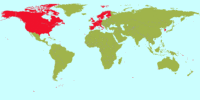 At world66 you can quickly make a map of what countries you've visited. Simple and kind of obvious, but cool. I feel a little ashamed that I haven't seen more of the world yet, but it still added up to 17 countries. At world66 you can quickly make a map of what countries you've visited. Simple and kind of obvious, but cool. I feel a little ashamed that I haven't seen more of the world yet, but it still added up to 17 countries.
[ Culture | 2004-02-07 19:24 | 0 comments | PermaLink ]
|
|
| Friday, February 6, 2004 |  |
|
|
|
In looking for ways of collecting patterns for collaboration, Julian suggests Collaboration Collaboratory, hosted by Blue Oxen Associates which seems like an excellent place for doing so, as it is already happening. And in a way I think I'm in synch with, at least. And it is a wiki, so one can basically just move in and contribute. There's a Pattern Repository with some patterns that have been identified so far.
This is the suggested template:- Name
- Context
- Problem
- Forces
- Solution
- Resulting Context
A pattern is a structured conceptual model of a solution to a recurring problem. It is usually deliberately vague on a lot of the details concerning the circumstances, but as precise as possible when it comes to the actual pattern. There's a certain context which is defined, and certain problems described that tend to come up in that context, and some forces that are at work. For example, we could talk about what happens if you put 30 people together in a room and they need to come up with some common plan. That would be a context. We wouldn't have to know who exactly they are or what the subject matter is. Without knowing that we can still guess that there are problems involved in agreeing on something within a certain time contraint, and the likelyhood that these people don't already agree, and the difficulty in getting them all to communicate well with each other at the same time. The forces involved might be the time, internal and external expectations, consequences of finding a solution or not, and the layout of the meeting space. There might be many possible patterns that might help such a group get somewhere. Not just one answer. But a pattern would be one solution that arranges things so that certain kinds of things are more likely to happen. And thus a somewhat new context is created.
So, the point is that there's value in writing such things down in a semi formal way, so that patterns can be passed on, and so one can install them more consciously, without having to re-invent them all the time.
[ Patterns | 2004-02-06 16:44 | | PermaLink ] More >
|
|
|
|
 Via The Green Man. If you're in London and you get off the tube at Elephant and Castle station you might like to make a small detour to Old Kent Road to see a more creative approach to tank camouflage. The project is the brainchild of Aleksandra Mir who, with some assistance, has recently completed the paint job. See the work in progress here. Via The Green Man. If you're in London and you get off the tube at Elephant and Castle station you might like to make a small detour to Old Kent Road to see a more creative approach to tank camouflage. The project is the brainchild of Aleksandra Mir who, with some assistance, has recently completed the paint job. See the work in progress here.
[ Culture | 2004-02-06 17:00 | | PermaLink ] More >
|
|
|
|
Mark Pilgrim has an enlightening article about the myth of RSS compatibility. I suddenly feel better about the little difficulties my self-made aggregator is having. Meaning, it is generally a mess to try to match a whole bunch of incompatible standards at the same time. Not to mention that people who write the feeds don't necessarily adhere to the standards. I was otherwise a bit dissatisfied that I couldn't find any suitable package that bothered to discern all the details of the different standards precisely, and I didn't get around to figuring it all out myself. Most packages seem to concentrate on what most of them have in common and ignore the differences and the details. Mark Pilgrim seems to have make an RSS parser that both juggles all the differences and is permissive about accepting and fixing the ways feeds might be screwed up. Looks great. I need to try it out.
[ Programming | 2004-02-06 18:28 | 0 comments | PermaLink ]
|
|
| Wednesday, February 4, 2004 |  |
|
|
|
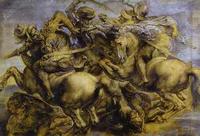 Via Dewayne Mikkelson, the principles of how to think like a da Vinci. From Michael J. Gelb's book "How to Think Like Leonardo Da Vinci: Seven Steps to Genius Every Day" Via Dewayne Mikkelson, the principles of how to think like a da Vinci. From Michael J. Gelb's book "How to Think Like Leonardo Da Vinci: Seven Steps to Genius Every Day"Curiosita: An Insatiably Curious Approach to Life and an Unrelenting Quest for Continuous Learning.
Dimostrazione: A Commitment to Test Knowledge through Experience, Persistence, and a Willingness to Learn from Mistakes.
Sensazion: The Continual Refinement of the Senses, Especially Sight, as the Means to Enliven Experience.
Sfumato: A Willingness to Embrace Ambiguity, Paradox, and Uncertainty.
Arte/Scienza: The Development of the Balance between Science and Art, Logic and Imagination. Whole Brain Thinking.
Corporalita: The Cultivation of Grace, Ambidexterity, Fitness, and Poise.
Connessione: A Recognition of and Appreciation for the Interconnectedness of all Things and Phenomena. Systems Thinking. Hey, I'm not doing half-bad on most of these.
[ Inspiration | 2004-02-04 18:24 | | PermaLink ] More >
|
|
| Monday, February 2, 2004 |  |
|
|
|
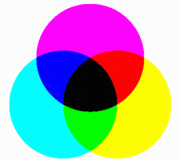 I'm looking for collaborative patterns. It would be good to catalogue useful ways for people to work together, particularly online. But I don't really easily find much in Google. I'm looking for collaborative patterns. It would be good to catalogue useful ways for people to work together, particularly online. But I don't really easily find much in Google.
There's the excellent Citizen's Science Toolbox geared towards face-to-face groups working on public issues. But how about patterns for online collaboration? Even just simple stuff like: these are the qualities and pros and cons of a chat room, a WIKI, a bulletin board, a weblog. But preferably more comprehensive and in more detail.
While I was looking, I ran into Catalyzation of New Patterns of Collaboration which is an old document from 1992, which is a project proposal to a Collaborative Studies Competition.The project aims to facilitate the ability to envisage viable configurations of functions based on structures more complex than those reinforced by hierarchical organization charts. It responds to the need for potential collaborators to design "conceptual keystones" essential to the coherence and viability of unforeseen coalition possibilities in difficult situations of governance.
The project focuses initially on the creation or modification of computer software for which an appropriate database is then developed in collaboration with a number of bodies. These tools are then used to provide a "catalytic context" from which new patterns of group and institutional action could emerge. The principal output would not therefore be any form of "report" but rather a piece of software (possibly a prototype). It is the dissemination of this software, ultimately through commercial channels, which would enable many people to explore the tool as a "collaboration enhancing" device. In this sense the real output of the project is new forms of collaboration.
Its claim to originality would lie in its ability to open up (and mid-wife) new and alternative patterns of collaboration -- especially across discipline, faction and cultural boundaries. In creating this device, the purpose of inter-institutional collaboration would be to enrich its scope (as represented by the database) and explore opportunities it opened up (specifically in relation to institutional arrangements for sustainable development). It aims for some kind of system for cultivating and organizing the awareness of specific patterns, which can be used as conceptual scafolding for specific collaborations.As with the construction of any building, there is a basic need for "scaffolding" to hold the conceptual and organizational elements in place, especially during the early phases of "imaginative, interdisciplinary" interconnection. It may be argued that it is the lack of this scaffolding feature which prevents many potentially useful initiatives from "getting off the ground" -- and staying up. And the more complex the psych-social structure, and the more communication space it spans, the greater the need for more complex scaffolding. That's the kind of stuff I'm interested in. I found this on Anthony's Judge's website. He's been instrumental in gathering large amounts of useful information for ages, but I haven't really looked at what he had for years. An enormous amount of stuff there. See for example Documents relating to Paradigm Change, Social Transformation.
[ Patterns | 2004-02-02 15:11 | | PermaLink ] More >
|
|
|
|
 Via Judith Meskill, from Hymn of the Universe by Pierre Teilhard de Chardin: Via Judith Meskill, from Hymn of the Universe by Pierre Teilhard de Chardin:...all abstract knowledge is only a faded reality: this is because to understand the world knowledge is not enough, you must see it, touch it, live in its presence and drink the vital heat of existence in the very heart of reality...
[ Inspiration | 2004-02-02 15:18 | 0 comments | PermaLink ]
|
|
| Sunday, February 1, 2004 |  |
|
|
|
 I recently added a list of books I'm reading to my sidebar. It is not going to be a very fast moving list, though. In part because I don't read all that fast, and in part because I tend to read multiple books at the same time, which I switch around between depending on whether I'm bored and what I'm interested in. But, just to give an idea, this is what I'm currently reading: I recently added a list of books I'm reading to my sidebar. It is not going to be a very fast moving list, though. In part because I don't read all that fast, and in part because I tend to read multiple books at the same time, which I switch around between depending on whether I'm bored and what I'm interested in. But, just to give an idea, this is what I'm currently reading:
 Cryptonomicon by Neal Stephenson. I love how he writes. I've read Snowcrash and The Diamond Age previously. This one is about cryptography and hidden treasures and world war II. It is quite a trip on various levels. Cryptonomicon by Neal Stephenson. I love how he writes. I've read Snowcrash and The Diamond Age previously. This one is about cryptography and hidden treasures and world war II. It is quite a trip on various levels.
 The Templar Revelation by Lynn Picknett and Clive Prince. Fascinating historical analysis along the lines of Holy Blood, Holy Grail. About the mysteries surrounding The Knights Templar, various secret societies, the life of Jesus and Mary Magdalene, and lots of stuff going on in the particular area where I happen to live, over the last two thousand years. I'm reading it in Danish. It is interesting, but somewhat repetitive, so I can't bear reading it continuously. The Templar Revelation by Lynn Picknett and Clive Prince. Fascinating historical analysis along the lines of Holy Blood, Holy Grail. About the mysteries surrounding The Knights Templar, various secret societies, the life of Jesus and Mary Magdalene, and lots of stuff going on in the particular area where I happen to live, over the last two thousand years. I'm reading it in Danish. It is interesting, but somewhat repetitive, so I can't bear reading it continuously.
 Getting Things Done by David Allen. Actually I haven't really read in it for a while, but it is lying here on my desk and it is one of my to-do items. Ironically. It is a great book about organizing your life. Makes more sense than any I've run into, as it is a system that can be fitted to my own preferences. And I really need to be more organized and not just have a zillion post-it notes lying around. Getting Things Done by David Allen. Actually I haven't really read in it for a while, but it is lying here on my desk and it is one of my to-do items. Ironically. It is a great book about organizing your life. Makes more sense than any I've run into, as it is a system that can be fitted to my own preferences. And I really need to be more organized and not just have a zillion post-it notes lying around.
 The Power of Now by Eckhart Tolle. I just started that, but it is fabulous. I haven't really read any self-help or spiritual books for a long time, as it sort of bored me and I've read a lot. But this one inspires me. Very practical and non-dogmatic guidance towards experiencing the present moment much more fully, and getting over the addiction to circular and non-productive thinking that most humans are afflicted with. The Power of Now by Eckhart Tolle. I just started that, but it is fabulous. I haven't really read any self-help or spiritual books for a long time, as it sort of bored me and I've read a lot. But this one inspires me. Very practical and non-dogmatic guidance towards experiencing the present moment much more fully, and getting over the addiction to circular and non-productive thinking that most humans are afflicted with.
 The Sexual Life of Catherine M by Catherine Millet. I'm reading that in French. It is rather unusual for an erotic type of book. It is written by a well-established academic art critic, and it has caused somewhat of sensation and is a bestseller in English too. In part because of the contents, wild orgies around Paris, and in part because of the strange detached way it is written. It is not even particularly erotic. She very matter of fact catalogues her sexual life, as if she's describing an art collection while being a fly on the wall. And at the same time it is very personal and intimate. The Sexual Life of Catherine M by Catherine Millet. I'm reading that in French. It is rather unusual for an erotic type of book. It is written by a well-established academic art critic, and it has caused somewhat of sensation and is a bestseller in English too. In part because of the contents, wild orgies around Paris, and in part because of the strange detached way it is written. It is not even particularly erotic. She very matter of fact catalogues her sexual life, as if she's describing an art collection while being a fly on the wall. And at the same time it is very personal and intimate.
Aside from that, I'm reading the French dictionary. I'm on my second time through 'A'. That's not quite as dull as it sounds, as it somehow provides some connection between things that one might miss otherwise. Alors, après que j'ai assimilé et appris 'A' et d'ailleurs abouti à une agréable et appréciable apogée, avec aucune amnésie, il s'agit de avaler la section 'B'.
Oh, and comic books of course. French comics have always been my favorite, so now I read them in French, of course, instead of mostly in Danish. Like Moebius or Valerian.
[ Diary | 2004-02-01 19:43 | | PermaLink ] More >
|
|
<< Newer stories Page: 1 ... 42 43 44 45 46 ... 97 Older stories >> |
|

This is a collage of things that catch my eye, things that need to be said, and stuff I really care about
TRUTH
BEAUTY
FREEDOM
LOVE
TECHNOLOGY
|
| Mon | Tue | Wed | Thu | Fri | Sat | Sun |
|---|
|
|
|
|
|
|
1 |
| 2 |
3 |
4 |
5 |
6 |
7 |
8 |
| 9 |
10 |
11 |
12 |
13 |
14 |
15 |
| 16 |
17 |
18 |
19 |
20 |
21 |
22 |
| 23 |
24 |
25 |
26 |
27 |
28 |
|
|




